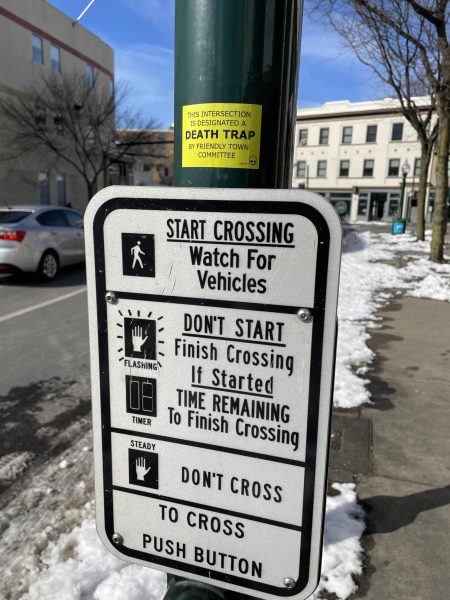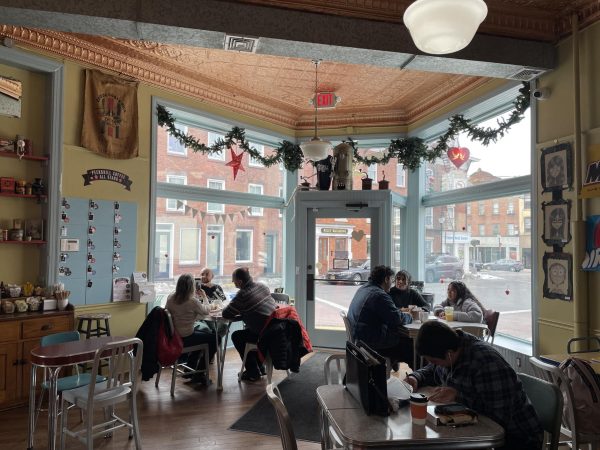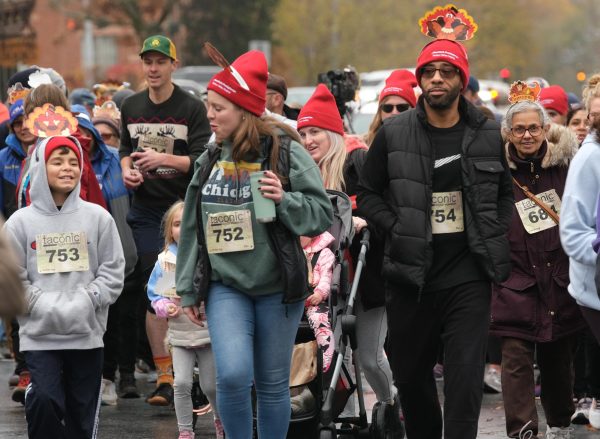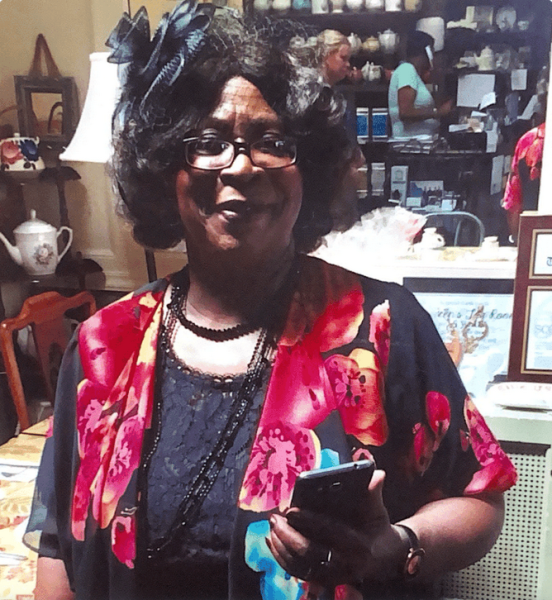Over the last three years, since I moved to Peekskill, it’s been vital for me to become connected to my new community. Regardless of what age you are, social isolation negatively affects your physical and mental health and reducing the potential for it to occur in a particular place is a central aspect of an age friendly society.
I’ve been trying to understand how I might become a responsible citizen, take part and contribute here. As an older person, at risk of becoming marginalized because of age discrimination, my wish to have a voice, remain relevant and be included in the larger community conversation is a pressing concern. As a social worker and long-time activist, I know that means figuring out where citizenship action is taking place.
Right now, in Peekskill (and in most other cities in the US), a good amount of community activism and participation is taking place on-line and on social media. Fueled by the pandemic, the digital world is increasingly where the citizenship rights and duties we have in the real world get carried out. Think of where we apply for Medicare or the on-line surveys we get from government, as examples.

While many studies have shown that local newspapers like this one are responsible for higher levels of community engagement and local political participation, financial constraints have led to most of these papers, including this one, to being delivered online and through social media platforms. Newspapers are no longer left on our front porch.
This raises the question of who has access to and possesses the knowledge and skills necessary to meaningfully participate in civic life as we currently know it in the digital age. It raises the question of what groups may be excluded.
In civics class, we learned what it meant to be a good citizen. Now we must engage in a new type of learning; how to be a good digital citizen. Dictionary.com defines a digital citizen as “a person who develops the skills and knowledge to effectively use the internet and other digital technology, especially in order to communicate and participate responsibly in social and civic activities.”
A recent post in this paper included a screenshot of a blog written by someone in Peekskill who was offering to make social change through the provision of free stickers, a kind of guerrilla marketing tactic first used by many artists from my generation (think Guerrilla Girls), to call attention to the social issue of safe streets, an issue I firmly support.

At first, I admired the tactic because I could relate to it, but the words, “We live in a town that has death-trap intersections, can’t keep a brewery in business, and is full of so many old people it could be a retirement home,” felt like an unexpected slap in the face. I had an immediate flash of anger followed by a desire to retaliate. I furiously looked up what percent of the Peekskill population was over 65 in preparation to arm myself for battle.
According to the last census, it is 16.4 percent, certainly nowhere near enough to characterize Peekskill as a “retirement home”. My plan was to write a scathing column about ageism in response. This is a perfect example of how pitting one generation against another serves only to take away from political engagement and create conflict between groups. The language used in the post derailed and distracted from an important issue that we both care about and want to change.
Responsible digital citizenship means we can navigate our digital environments in a way that’s safe and that we can respectfully engage with those with who we agree with, or not, in these spaces. Research has found that people are more aggressive and ruder when commenting on-line than they are in face-to-face interactions. There is less accountability. Reading negative comments makes us feel and respond more negatively, too. That’s exactly what happened to me.

During my time as a professor and on-line personality, I had to learn what it meant to be a responsible digital citizen and how to respond, or not, to negative comments. I learned to slow down and not write back in the heat of the moment.
I learned how to create a counter narrative to anger and conflict and one that seeks to remain in relationship. One that promotes mutual learning and growth. I learned how to reach out and ask for diverse people’s opinions, especially ones that would challenge whatever bias I might have about the issue that caused me to react.
In this instance, a friend challenged me to question if this issue was really about one person’s ageist comment, but rather, how we relate to, and talk about each other online. It made me think about what our responsibility is when we are participating in a conversation about where we live as a digital citizen. That was the bigger issue.
We know a good deal more about the positive and negative impact of social media and the internet than we did when many of us first started to use it. Today there are curriculum in schools that teach children how to be responsible and respectful digital citizens. I had to learn on my own. It’s clear from the blog post comment and comments on Facebook and apps like Nextdoor, some in our community need to learn how too.
When you walk into Peekskill Coffee House and see members of all generations interacting, you can witness the real Peekskill narrative about age. I feel it in the house parties I attend where there are babies, children, young adults, middle-aged adults and older adults all in conversation, discovering all the things we have in common and also learning something new.

It’s in how Peekskill cares for older persons with meals that are healthy and cooked by a real chef, provides a way to go shopping, supports the need to exercise, access to transportation or opportunities for life-long learning. The way we all have younger and older friends.
Instagram photos visually depict the relationships we have across generations, showcasing the diverse membership of Peekskill Walks and the participants of the Annual Thanksgiving Turkey Trot. The words of the young reporter who writes for this paper hold relevance for us all. I experience it when residents of all ages comment and like my photos about life here in Peekskill.
For the most part, we are good citizens in our real life and everyday encounters, but if we want to have a truly inclusive community, we must become, and support others in becoming, good digital citizens too.

It means that if the local government wants to engage its citizens across all demographics in a meaningful way, it must promote opportunities for digital citizenship participation as well. The City of Peekskill’s recent launch of an Instagram account and programming that provides older adults with the opportunity to learn technology skills and devices to use them so they may remain connected are examples of effective leadership in this area. This programming acknowledges the wide range of digital capability among older people and promotes digital equity. The Instagram account acknowledges that many members of our community access information and communicate via social media.
While access is a starting point for inclusion, we must go beyond that and teach all our citizens, of all ages, how to actively and responsibly take part in the conversations our community is having on-line about housing, employment, walkability, development, the environment, the arts and the decisions that are being made now that will affect us in the future.
The City of Peekskill’s new Instagram account has already shown how it can facilitate communication between the community and the government in its quick response to a local citizen’s social media posting about safe streets and the resulting actions taken by the government.
I am hopeful the city will engage us by asking what information we would like to see posted on this new Instagram account along with translations to ensure inclusion. Some residents, especially those with young families and those who want to stay here for the long haul, regularly post their vision for Peekskill on Instagram and other on-line forums. This allows me, as an older person active on social media, to know what they care about and, when possible, to support them.
An issue like affordable childcare for example, impact parents and grandparents alike. I would like to advocate for posts on the city’s Instagram account where the Senior Citizen Advisory Council shares the concerns of older persons in our community, so we might engage others who primarily engage through social media, to support us in addressing those issues, too.

As Peekskill continues to implement digital strategies that encourage on-line community engagement and participation, it is our work as members of this community to become educated about what it means to be a responsible and respectful digital citizen and then mindfully make sure we practice it whenever we engage in on-line conversations about the issues in Peekskill we care about.
Resources:
Becoming a Good Digital Citizen: Navigating the On-line World Ethically
https://www.cyberwise.org/post/becoming-a-good-digital-citizen-navigating-the-online-world-ethically



